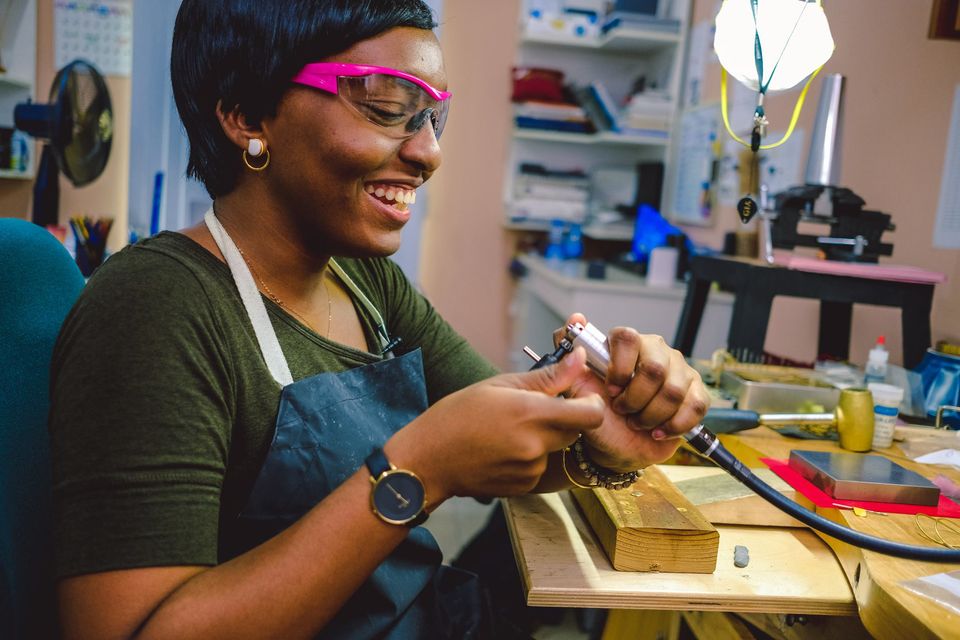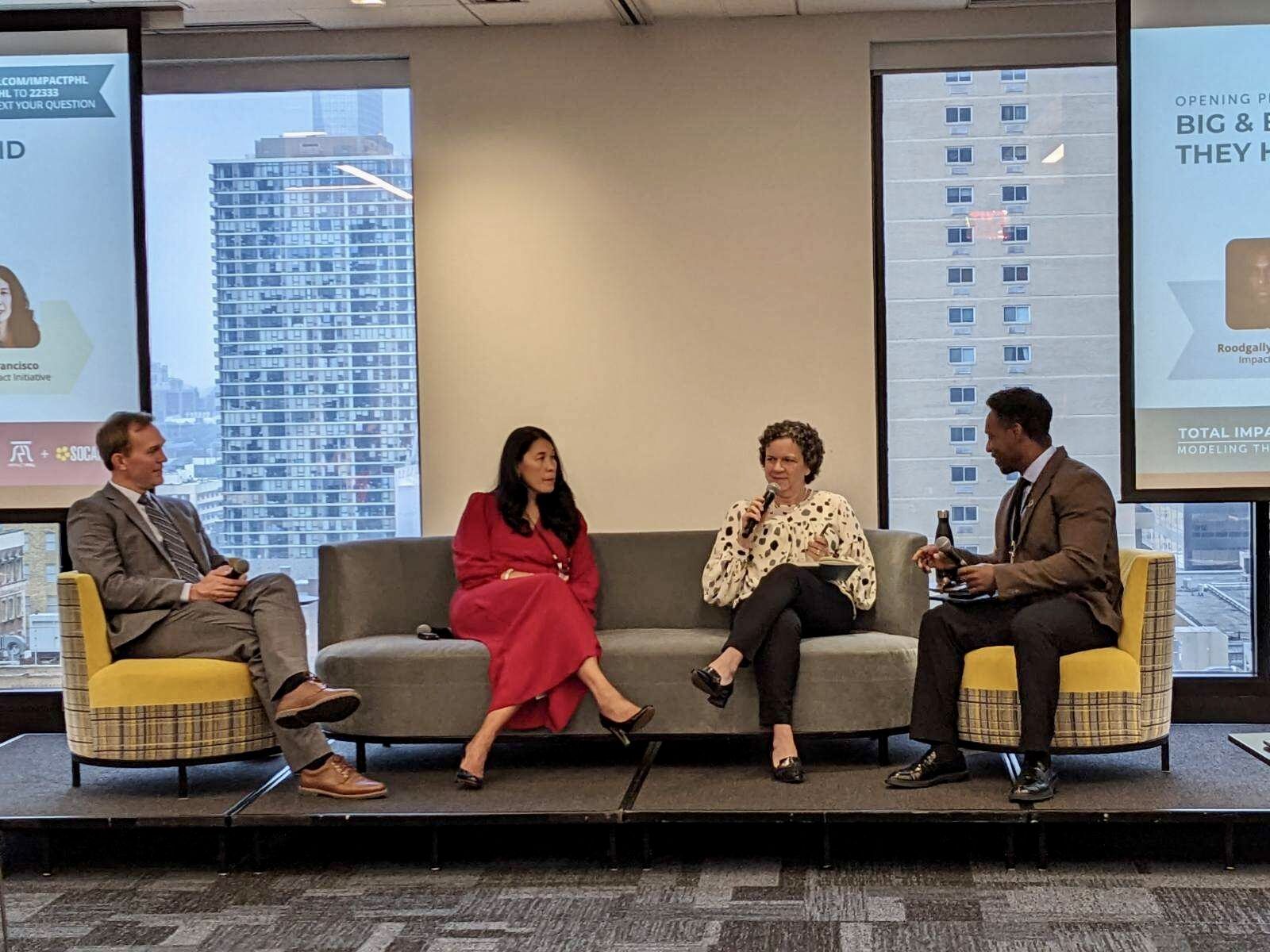Greetings, Agents of Impact!
What now? What’s next? Share your take. Whatever the final results of yesterday’s U.S. election, there’s a changing landscape in the sectors, asset classes, issues and communities where impact investors are working. ImpactAlpha is looking to Agents of Impact to chart the new narrative. What happens now? How will your work change? What are the risks – and the opportunities? What’s next for impact investing and sustainable finance? For you? Keep your insights coming (and thanks to the early adopters). Send a few lines or a bit more to [email protected] or use this handy form.
Featured: ImpactAlpha Original
Post-pivot, African tech startups are peddling pandemic resilience. As Africa’s economies restart from COVID lockdowns, the businesses on the fastest recovery path are tech startups helping improve the resilience of the continent’s small businesses. A raft of tech startups have raised venture funding for digital solutions for informal, micro and small businesses. Some are building digital offerings around financial services. Others are offering tools and services to help businesses get back up and running, online. Tech startups that have pivoted their own operations are finding revenue opportunities helping other businesses do the same, putting a tech-innovation spin on many countries’ COVID economic response and recovery. “You would see village men and women in Nigeria wearing masks, even if they didn’t have full context of what was happening,” says Dayo Koleowo of Microtraction, an early-stage tech venture fund in Lagos. “It underscores how important the private sector is to the government’s reach.”
The big opportunity in servicing small businesses was underlined by Stripe’s $200 million acquisition of Nigeria’s Paystack last month. Kenya’s Data Integrated is helping communal taxi and bus operators institute digital ticketing and cashless payments. Sokowatch is working with informal kiosk and retail owners to streamline inventory ordering and payments. Field Intelligence is providing inventory forecasting and financing for small pharmacies in Kenya and Nigeria. Digital lender Lidya is offering a “synthetic furlough”—short-term, flexible loans with grace periods for repayment—to help businesses retain workers while conserving working capital; the company is expanding to provide such relief loans in the Czech Republic and Poland as well. Companies with strong digital foundations are rebounding fastest from the pandemic, says Tokunboh Ishmael of Alitheia Capital, also in Lagos. “They’re all shy of their projected targets for this year, but the ones that have succeeded in leveraging their digital capabilities will probably finish the year only about 10% shy.”
Keep reading, “Post-pivot, African tech startups are peddling pandemic resilience,” by Jessica Pothering on ImpactAlpha.
Dealflow: Follow the Money
Virginia-based Micronic Technologies raises $3 million to purify water on the spot. The Center for Innovative Technology’s CIT GAP Funds and The Pearl Fund led the investment, with participation from CAV Angels. Micronic’s “zero liquid discharge” water purification technology treats wastewater from industries as well as municipal landfills, while reducing wastewater volume by 95% and removing over 99% of contaminants. Micronic is woman-led, by CEO and co-founder Karen Sorber, and located in an Opportunity Zone in southwest Virginia. Local advocacy groups and place-based investors are building a financial ecosystem to invest in a post-coal future (see, “How place-based strategies in Virginia and other states are leveraging private capital for public good”).
- Opportunity Zone opportunities. Investments in an operating business like Micronic are countering early signals that opportunity funds are focused only on real estate deals. In South Carolina, GEM Opportunity Fund and a trio of food and packaging firms are investing $314 million in the Agriculture Technology Campus, which plans to employ more than 1,500 people to cultivate produce using controlled environment agriculture. In Seattle, OZ Navigator closed on a $2.7 million property near the Othello light rail station to build mixed-income housing, including 164 affordable units. National Equity Fund and Fifth Third Bank closed a $25 million Opportunity Zone fund to expand workforce and low-income rental housing in Chicago, Cincinnati and Kalamazoo, Mich. See more OZ deaflow on Economic Innovation Group’s Opportunity Zone activity map.
- Go deeper. Opportunity Virginia is hosting workshops on equitable development, affordable housing, operating businesses, economic development best practices and other Opportunity Zone topics, November 10-19. Register now.
- Share this post.
Charm Energy raises £273,520 to help crowdfund clean energy projects in Asia and Africa. Call it crowdfunding for crowdfunding. Charm’s peer-to-peer investing platform allows individual investors to provide debt financing for early stage clean-energy projects in developing markets. Charm Energy raised its own equity crowdfunding on Crowdcube. Charm, which has received support from the U.K.’s Energy Catalyst program, Energy 4 Impact’s Crowd Power initiative and the Good Energies Foundation, has five active loans across West Africa and India.
Signals: Ahead of the Curve
As politicians dither, a consumer lender bridges chasms in the social safety net. The expiration of federal COVID relief funding in the U.S. showed up almost immediately in the loan portfolio of Andy Posner, head of Providence, R.I.-based Capital Good Fund. The plucky $10 million community development financial institution makes consumer loans in a half-dozen states that represent a cross-section of America: Rhode Island, Delaware, Illinois, Florida, Massachusetts and, most recently, Texas. Since March, Capital Good Fund has made more than 600 small loans totaling more than $540,000 that have enabled families to pay for rent, utilities, food, and technology to help their kids study at home. “We’re part of people cobbling together what they can through various programs,” he says. The crisis “has exposed how useless our social safety net is.” With hopes for a second stimulus package all but dashed for 2020, Posner worries how people at the bottom of the “K-shaped” recovery will fare. “We’re kind of the backstop,” he says, “and we shouldn’t be it.”
Keep reading, “As politicians dither, a consumer lender bridges chasms in the social safety net,” by Amy Cortese on ImpactAlpha.
Agents of Impact: Follow the Talent
Prairie Rose Seminole, Nikishka Iyengar, Mariela Cedeño, Cheryl Cherry and Noel Andrés Poyo join Olamina’s community advisory board…Janus Henderson Investors names Paul LaCoursiere, ex-Aviva Investors, as global head of ESG investments… Bamboo Capital Partners seeks an investment associate in Bogota… Mission Investors Exchange is looking for a member experience associate in New York… MIE’s Matt Onek will join Impact Entrepreneur for “Post-Election Philanthropy: Safeguarding the Heart of Impact Investing,” Thursday, Nov. 12.
Thank you for reading.
–Nov. 4, 2020











